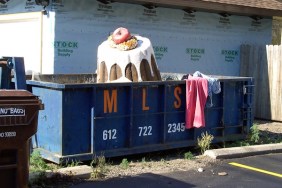Tiny plastic “mermaid’s tears,” destined for industrial injecting molding machines but often spilled in transit, make up an astonishing proportion of the plastic waste floating in the world’s oceans. The small pellets measure a mere 2mm in diameter, yet they represent around 10 percent of the world’s marine litter. Rather than let the scraps float around and clog up the waterways, a group of Royal College of Art graduates created an endearing project that would take the mermaid’s tears out of the ocean and bring them into homes.
(all images via: Dezeen)
The Sea Chair project starts out with a relic of a bygone era: a retired fishing trawler. A number of factors have led to the swift and sharp decline of Britain’s fishing industry, leaving scores of the old boats languishing in harbors. The design team, consisting of Alexander Groves, Kieren Jones and Azusa Murakami, pulled one of them out of retirement to help solve the problem of the plasticized oceans.
Despite their fairytale-like name, mermaid’s tears are harmful to the environment on many levels. They litter the oceans and beaches, soak up harmful chemicals and find their way into the food stream where they do even more damage. Some 13,000 of the little nuggets are said to float in every square mile of the ocean, but they are too small to be removed by normal waste systems.
The Sea Chair project would turn that old fishing trawler into a floating recycling plant. It would float along the most polluted beaches of England where the team will scoop up and sort the bits of plastic. A hand-powered water pump and a flotation tank would work to separate the still-usable mermaid’s tears from other waste and from sand.
Once the plastic pieces are sorted, a tiny plastics factory on board the trawler will help them fulfill their destiny at last. The industrial plastic pieces will be transformed into chairs which will likely have a more interesting history than any other chairs on the planet. Although the team has already created and used the plastic sorting device, the chair factory itself is yet to be constructed. If the project gets enough votes in the Victorinox Time to Care Award competition the team will receive funding to bring their amazing concept to life.





